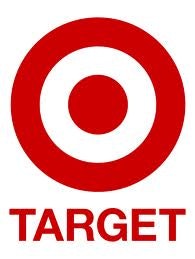
The Canadian retail market is very promising. According to data from the Retail Council of Canada, retail trade’s direct contribution to the Canadian economy was about $74.2 billion in 2009, which was 6.2% of the country’s GDP. The retail sector’s GDP growth in Canada was 34% faster than that of the US between 2008 and 2012. Retailers are now expanding in Canada because of a saturation of sales in the US, growing competition from online players and promising Canadian market.
Target Corporation (NYSE:TGT) plans to open a total of 124 stores in the country by the end of this year and recently opened 17 of them across Ontario. It’s expected that Canada will contribute $2.2 billion in sales in fiscal year 2014 and $4.1 billion the year after.
Early reports suggest better-than-expected sales in the region. The total capital spending planned for the expansion is close to $2 billion. Target might expand to other similar markets as well if the Canada expansion is successful.
In the fiscal year that ended on Jan. 31, Target Corporation (NYSE:TGT)‘s consolidated revenue increased 4.9% to $73.3 billion. Diluted EPS in 2012 increased 5.6% to $4.52 from $4.28 in the prior year. The gross margin and the EBIT margin were almost constant at 30% and 7%, respectively, over the last three years.
Free cash flow is expected to increase to $3.6 billion in 2015 from $1.1 billion this year due to declining capital expenditures and higher cash flow from operations.
Credit cards contribute a portion of the company’s revenue, and are comprised of finance charges, late fees and third-party merchandise fees. The penetration of the Target credit card and debit card saw an increase of 13.6% in 2012 over last year. The success of credit cards has proven to be very productive for the company in terms of the number of customers it attracted because of the discounts offered.
Target Corporation (NYSE:TGT) recently sold its credit-card division in Canada to Toronto-Dominion Bank for $5.9 billion. This amount is equal to the total receivables outstanding for the company. As per the deal, TD Bank will underwrite, fund and manage risk for all the Target credit-card receivables for the next seven years.
Target, on the other hand, will continue to service its current credit-card customers and will also continue to receive the majority of the profits from all credit-card transactions. Therefore the deal is a positive for Target investors as it has reduced the risk profile of the company and eliminated some operational costs, without affecting profitability.
Wal-Mart Stores, Inc. (NYSE:WMT), founded in 1962, is the largest retailer in the world. To counter Target Corporation (NYSE:TGT)’s expansion plans in Canada, Wal-Mart Stores, Inc. (NYSE:WMT) has announced to spend $450 million to upgrade and expand its store network in Canada this year. This would be in addition to the $750 million Wal-Mart Stores, Inc. (NYSE:WMT) spent last year. The company is targeting to have 388 stores in Canada by the end of January 2014. This might prove to be a threat for Target’s expansion plans.
Its stock has returned more than 60% to its investors since July 2011. It’s currently following an upward trend. Its trailing P/E ratio of 15.5 and forward P/E ratio of approximately 13.3 are lower than the industry average, with the next five years EPS growth forecast of 9.6%. Therefore the stock has enough upside potential to give its investors considerable returns in the long term.
Costco Wholesale Corporation (NASDAQ:COST), founded in 1983, is the fifth-largest retailer and the largest membership warehouse-club chain in the US. In February, the company reported that its revenue rose 8% to reach $24.3 billion. Diluted EPS increased from $0.90 per share last year to $1.24 per share this year.
Costco Wholesale Corporation (NASDAQ:COST) is similarly expanding, and has plans to open 14 more warehouse stores before September. This includes the company’s expansion into international markets such as Japan, South Korea, Taiwan and Australia.
The stock has achieved higher highs and higher lows since March 2009. This suggests that it has been following an upward trend and has given a return of around 60% since then. It is trading with a P/E ratio of approximately 23.6, which is higher than the industry average, with a five-year EPS growth forecast of 10.7%. Therefore, investors might wait for some correction in the stock price before investing in it for long term.
Target Corporation (NYSE:TGT) has announced it will buyback $5 billion of its shares under a stock repurchase program in the next two years. Dividends have been increasing over the past five years and are expected to continue growing. This will ensure that investors get sufficient returns.
The company’s strong fundamental performance has helped it to keep expanding its operations. Its expansion into Canada is now very critical for the company’s future growth, and it’s highly probable that the company will pass this litmus test.
The stock is currently trading at a trailing 12-month P/E ratio of 15, which is lower than not only its major competitors but also than the industry average. Its forward P/E ratio is even lower. With an expected operating income growth of 21.8% and an expected EPS growth rate of 9.1% over the next five years, the stock price currently might not reflect the company’s future growth prospects. Investors might want to hold onto the stock until the price starts reflecting growing sales due to the Canadian expansion.
The article Hold Your Target originally appeared on Fool.com and is written by Shas Dey.
Copyright © 1995 – 2013 The Motley Fool, LLC. All rights reserved. The Motley Fool has a disclosure policy.
